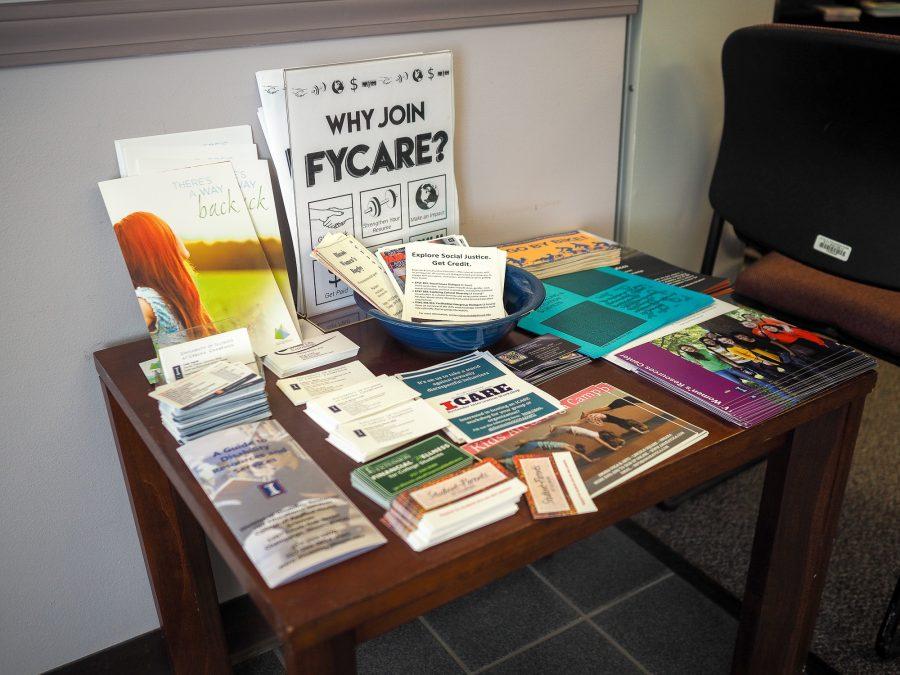No real punishment for skipping FYCARE/Haven
The Women’s Resource Center, which sponsors FYCARE, provides a plethora of resources for students.
Nov 16, 2016
When students do not complete First-Year Campus Acquaintance and Rape Education, FYCARE, or Haven, they are referred to the Office of the Dean of Students, but there is no real punishment for not completing the so-called mandatory training programs.
The University addresses the issues of sexual assault and harassment through these two programs: Haven and FYCARE.
FYCARE is the most commonly-known program, as every freshman is required to complete it.
But Renee Romano, vice chancellor of student affairs, said, “There is not a heavy sanction against those who don’t complete it.”
She noted, however, that a high percentage of students do complete FYCARE successfully. Romano did not have numbers available for the percentage that completes Haven.
Get The Daily Illini in your inbox!
“We try to emphasize to students that they need to complete these programs, and we get a really good response,” Romano said.
Danielle Morrison, the University’s interim Title IX coordinator, said in an email that the University is committed to the safety of students and to improving prevention of and response to sexual misconduct.
“The University’s Prohibition of Sex Discrimination, Sexual Harassment, and Sexual Misconduct Policy requires all incoming, returning, and transfer students, as well as all faculty and staff, to be regularly educated on discrimination and harassment prevention, sexual violence and reporting options and obligations,” Morrison said.
Additionally, the University establishes educational policies, procedures and regulations that students are responsible for knowing and complying with, according to section 1-201 of the Student Code, she said.
Molly McLay, assistant director of the Women’s Resources Center, wrote in an email that FYCARE is a little more in-depth than Haven, as it is a conversation between students.
“Research shows that in-person, dialogue-based, peer-led programming is effective, because students are more likely to listen to their peers and begin to shift social norms in their peer circles as a result of other positive peer influence,” McLay wrote. “Having a discussion and hearing it from a peer that sexual assault is not a survivor’s fault has the potential to make a lasting impact.”
FYCARE covers supporting survivors, consent, intervention strategies and resources through activities and discussion among students.
Haven and its companion program Haven Plus are less well-known. These are both online education training programs based on evidence content for sexual assault prevention.
Topics addressed in Haven include healthy relationships, gender socialization, sexual assault, the importance of consent, bystander intervention, laws and campus policies.
McLay believes that completing a combination of the programs annually is beneficial to students, as they will stay up-to-date on the topic of sexual assault.






